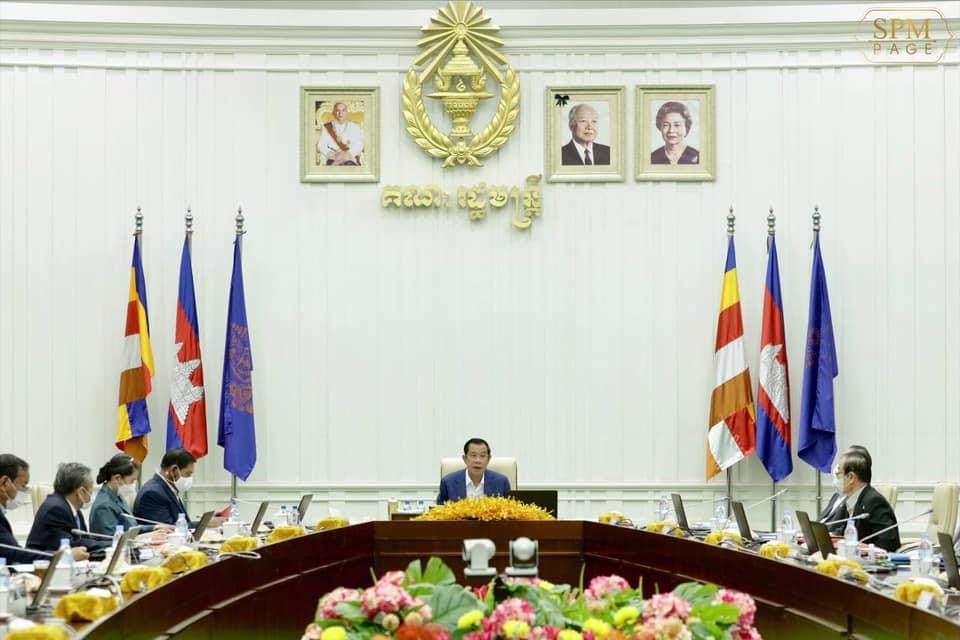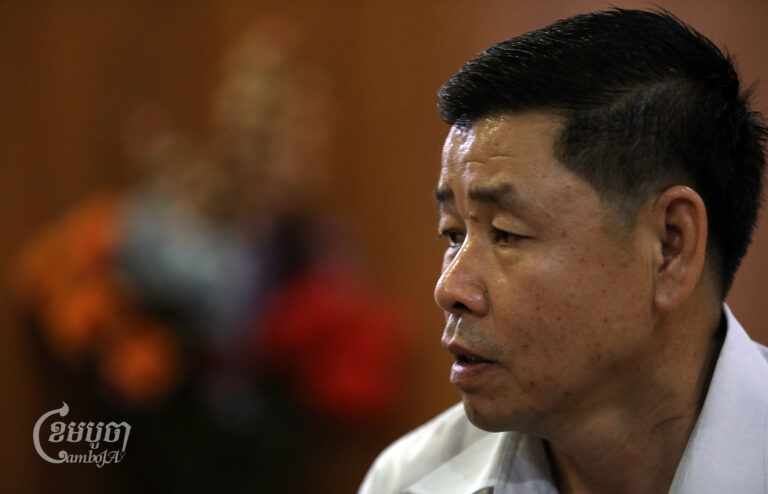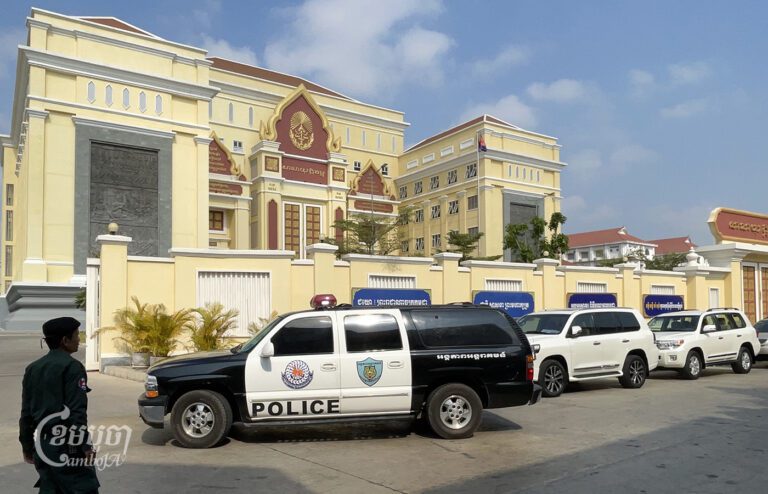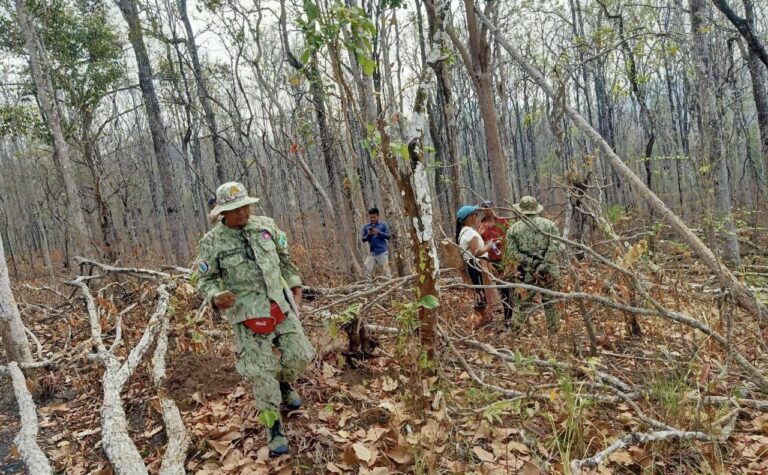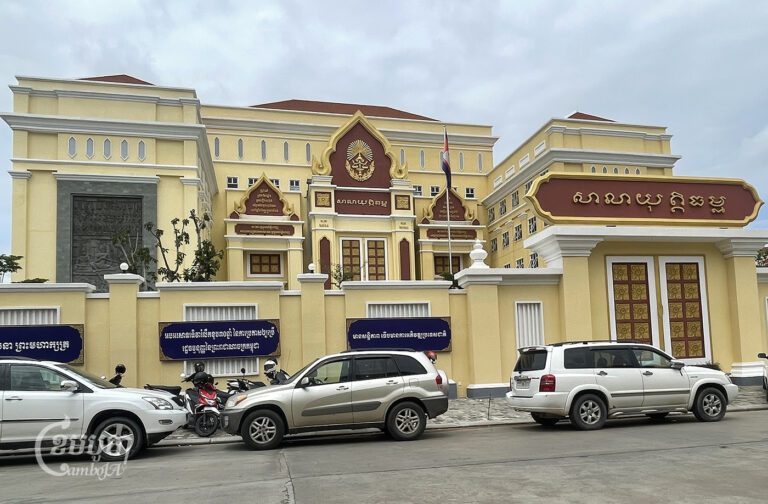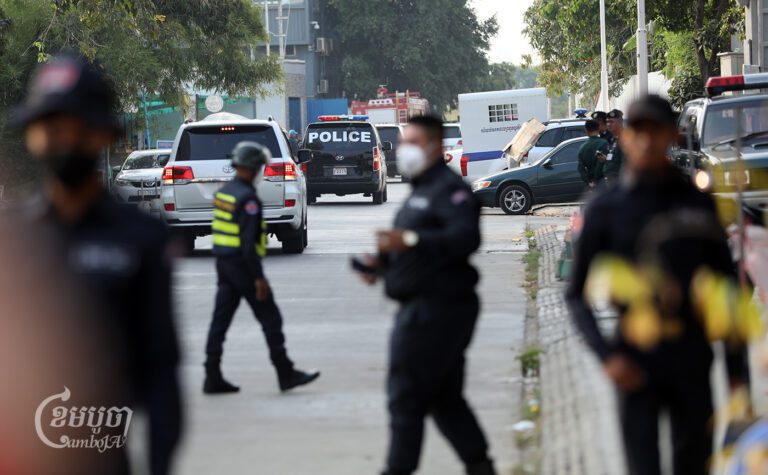Cabinet ministers on Friday endorsed amendments to the constitution that would bar those holding multiple citizenship from holding top offices.
The draft amendment came at the request of Prime Minister Hun Sen, who on Wednesday called for the constitution to require leaders to hold only Cambodian citizenship after the Guardian ran an article incorrectly saying Hun Sen was one of thousands of non-Europeans who received a Cypriot passport. The newspaper later ran a correction noting that it was only members of his inner circle who were discovered to hold the passport, according to information from the “Pandora Papers” data leak.
The endorsed draft amendments will be sent to the National Assembly, in which it is expected to pass as the ruling party holds all the seats.
According to the draft law, the prime minister, the presidents of the National Assembly and Senate, and the head of the Constitutional Council must only hold Cambodian citizenship to “avoid foreign interference and show loyalty to the nation.”
“When the constitutional [amendment] comes into force, the position of Hun Sen will be ended because they accused Hun Sen of having dual citizenship,” Hun Sen said during the cabinet meeting.
“The door has been closed forever, for a person who has dual citizenship, and attempted to have the top position, especially prime minister,” he said.
“I wait to see who will oppose this amendment and whether that person has intended to be the prime minister or support who to be the prime minister in favor to be minister or secretary of state,” he said.
Former opposition leader Sam Rainsy, who holds a French passport and lives there in self-exile, told CamboJA via email that it is an “honor” to be prosecuted for political “crimes.”
“Normally a law is intended to defend the public interest. [The] Hun Sen-inspired law targeting me and barring me from becoming prime minister, is just very mean,” he said.
Rainsy said he would abandon his French passport if need be to hold a leadership position.
Civil society groups and analysts said draft laws, particularly constitutional amendments, should not be rushed.
Ny Sokha, president of rights group Adhoc, said that amendments should be aimed at the nation as a whole and enshrining people’s rights.
“What we have [seen] in the recent constitutional amendment is related to instigating arguments between politicians, and I think these things are not serving the nation and people as whole, so the amendment should not go through,” he said.
“The amendment would stifle the majority of opposition leaders who are in exile, so when the law comes into force, they will find it difficult to return to political contesting,” Sokha said. Many of the top leaders in the Cambodia National Rescue Party hold dual citizenship, and have been living abroad since 2017, when the party was dissolved and outlawed, and party president Kem Sokha was arrested on charges widely seen to be politically motivated.
Seng Sary, a political analyst, echoed Sokha saying there shouldn’t be such sweeping new amendments now, when the opposition remained barred from the government, though he supported such a law in theory.
“For my opinion, the establishment of law during a political crisis, and which has been instigated from political argument, I think that it should be suspended,” he said.
“It’s necessary for Cambodia to have that type of law, but it should come from holding a public referendum and when Cambodia has a good political atmosphere, including when our parliament has multiple parties to represent the people but we have seen our National Assembly is single party,” Sary said.
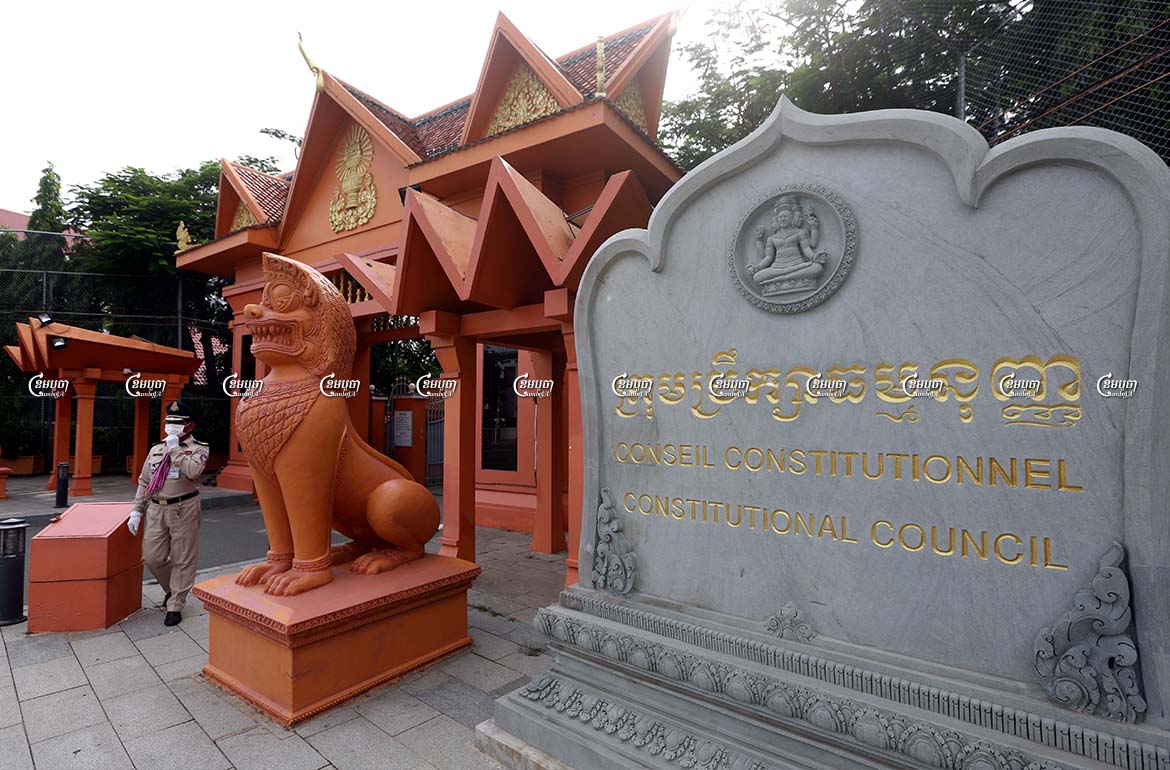
Former senior CNRP official, Ou Chanrath, said that he disagreed with the amendment which arose from a political argument with Rainsy, who posted the Guardian article on his Facebook page along with critical comments.
“I think that if it is amended to prevent a few people [from holding office], it will impact the national interests and people because it shows a discrimination against Khmer people who lived overseas, including depriving them of their rights to hold top posts,” said Chanrath, who holds an American passport and said he would give it up if need be.
“It has also affected the spirit of their participation in politics, including the spirit of national unity,” Chanrath said, adding that the constitution is meant to protect all Cambodian citizens, including those who live abroad.
Justice Ministry spokesman Chin Malin said that it is necessary to amend the constitution due to top politicians desire to “enshrine national interest and prevent foreign interference”
He noted that many other democratic countries have similar laws.
On Thursday, the Phnom Penh Municipal Court issued plotting and incitement charges to four senior leaders of the outlawed CNRP party, all of whom are abroad, saying they used disinformation to appeal to the armed forces and people to overthrow the legitimate government.
The Municipal Court statement stated that Rainsy, Eng Chhai Eang, Mu Sochau, and Ho Vann “are criminals who have caused serious disturbances of security,”
The charges came just a day after Vitit Muntarbhorn, UN special rapporteur, presented a report to the UN Human Rights Council saying Cambodia is “backsliding” away from democracy and calling on the government to act on a number of fronts to expand civic and democratic space.
“Suspend draconian laws and reform them,” said Muntarbhorn. “Drop court cases and end the detention of those who disagree with the authorities. Restore political rights to members of the political opposition, and propel reconciliation. Share the power and end the monopoly.”
He also highlighted 25 human rights defenders currently in Cambodia’s prison system; the conviction of nine senior opposition political figures sentenced to up to 25 years; and 50 reported instances of harassment of journalists this year.
Against the backdrop of this political clampdown, Muntarbhorn expressed concern about the environment for commune elections in 2022 and national elections in 2023, “which may take place without the existence of a viable opposition party, endangering people’s right to genuinely participate in public affairs.”
Phay Siphan, government spokesman, could not be reached for comment.


